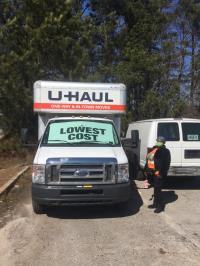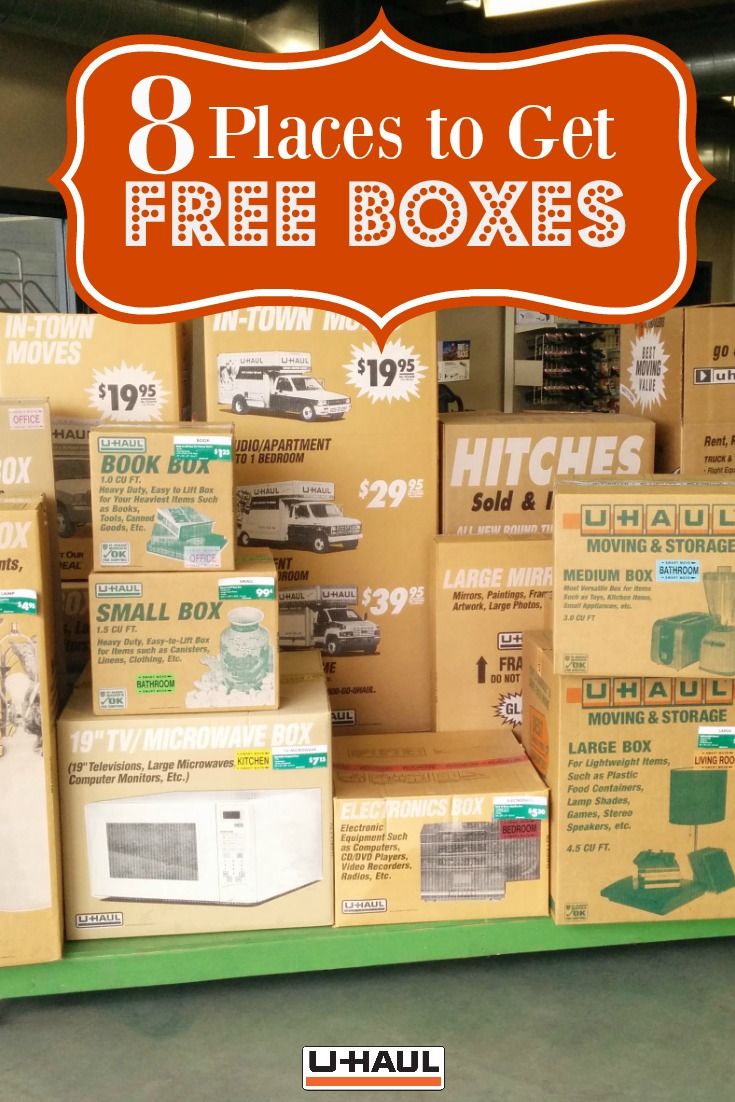U-Haul Sales: Your Comprehensive Guide to Moving Solutions
U-Haul Sales: Your Comprehensive Guide to Moving Solutions
Moving is often cited as one of life’s most stressful events, but for millions, U-Haul sales represent a beacon of hope, offering the tools and services needed to transform a daunting task into a manageable project. When we talk about "U-Haul sales," we’re not referring to the company’s financial performance or selling shares; rather, we’re delving into the vast array of products and services U-Haul offers to empower individuals and businesses to handle their moving, storage, and packing needs. This includes everything from renting a truck or trailer to purchasing moving supplies, securing storage units, and even connecting with local moving labor.
Since its inception in 1945, U-Haul has revolutionized the do-it-yourself (DIY) moving industry, building an expansive network of company-owned centers and independent dealers that make moving equipment accessible in virtually every corner of North America. Understanding U-Haul sales is crucial for anyone planning a move, as it unlocks the potential for cost savings, flexibility, and control over their relocation process. This comprehensive guide will explore the multifaceted world of U-Haul sales, providing insights into its offerings, how to navigate its services, understand pricing, and make the most of your moving experience.
Understanding the U-Haul Sales Model
At its core, the U-Haul sales model is built on convenience, accessibility, and a comprehensive approach to moving. Unlike traditional moving companies that handle every aspect of a move, U-Haul empowers customers to take the reins. This model is sustained by:
- Extensive Network: U-Haul boasts over 21,000 locations across the U.S. and Canada, including company-owned centers and independent neighborhood dealers. This vast footprint ensures equipment is readily available wherever and whenever it’s needed, facilitating both local and one-way rentals.
- Diverse Product Portfolio: Beyond just trucks, U-Haul’s sales encompass trailers, storage units, moving supplies, and even ancillary services like propane sales and hitch installations. This "one-stop shop" approach simplifies the moving process for customers.
- Flexible Rental Options: Customers can rent equipment for in-town moves (typically a daily rate plus mileage) or one-way moves (a flat rate for the entire trip, often with included mileage). This flexibility caters to various moving scenarios.
- Customer-Centric Technology: Online reservations, mobile apps, and self-pickup/return options streamline the rental process, allowing customers to manage their reservations and access equipment with ease.
The success of U-Haul’s sales strategy lies in its ability to meet diverse customer needs with a standardized yet adaptable service offering, making it the go-to choice for DIY movers.
Key Products and Services Offered
The "sales" inventory at U-Haul is extensive, designed to cover every aspect of a move. Here’s a breakdown of their primary offerings:
Truck Rentals
The most recognized aspect of U-Haul sales, their fleet includes a variety of truck sizes to suit different moving needs:
- Pickup Trucks & Cargo Vans: Ideal for small loads, apartment moves, or hauling specific items.
- 10-Foot Truck: Perfect for studio or small one-bedroom apartments.
- 15-Foot Truck: Suitable for one to two-bedroom homes or larger apartments.
- 20-Foot Truck: Designed for two to three-bedroom homes.
- 26-Foot Truck: The largest option, capable of moving four-plus bedroom homes.
All trucks come with features like automatic transmissions, air conditioning, and often EZ-Load ramps for easier loading.
Trailer Rentals
U-Haul offers a diverse range of trailers, providing cost-effective alternatives for smaller moves or specific hauling needs:
- Cargo Trailers: Enclosed trailers in various sizes (4×8, 5×8, 5×10, 6×12) for protecting belongings from elements.
- Utility Trailers: Open trailers (4×7, 5×8, 5×10, 6×12) for hauling irregular items, landscaping materials, or vehicles.
- Auto Transports & Tow Dollies: Essential for towing a vehicle behind a U-Haul truck or another personal vehicle. Auto transports lift all four wheels, while tow dollies lift the front two wheels.
Storage Solutions
For those needing temporary or long-term storage, U-Haul provides two primary options:
- Self-Storage Units: Traditional storage units in a wide range of sizes, available at many U-Haul locations. These offer secure, climate-controlled or standard options.
- U-Box Portable Storage Containers: These containers are delivered to your home, you pack them, and U-Haul either stores them at a secure facility or ships them to your new location. Ideal for long-distance moves or flexible storage.
Moving Supplies
A critical component of U-Haul’s sales, these items ensure belongings are packed safely and efficiently:
- Boxes: A vast selection of moving boxes, including specialty boxes for dishes, wardrobes, and electronics.
- Packing Materials: Bubble wrap, packing paper, packing peanuts, stretch wrap, and moving blankets/pads.
- Tape & Dispensers: Various strengths and types of packing tape.
- Dollies & Hand Trucks: Appliance dollies, utility dollies, and furniture dollies for easier heavy lifting.
- Protective Covers: Mattress bags, sofa covers, and other furniture protection.
Moving Labor Services (Moving Help®)
While not direct U-Haul employees, Moving Help® is a U-Haul-powered marketplace connecting customers with local, independent movers for loading, unloading, packing, and cleaning services. This service allows customers to get the physical help they need without committing to a full-service moving company.
The U-Haul Sales Process: How to Rent
Renting from U-Haul is designed to be straightforward, whether you’re a first-timer or a seasoned mover.
- Determine Your Needs: Use U-Haul’s online size estimator to determine the right truck or trailer size. Consider your moving dates, origin, and destination.
- Make a Reservation:
- Online: The most common method, using U-Haul’s website or mobile app. You’ll select equipment, dates, locations, and provide personal information.
- Phone: Call U-Haul’s central reservation line or a local U-Haul center.
- In-Person: Visit a U-Haul location to speak with a representative.
- Tip: Reserve well in advance, especially during peak moving seasons (end of month, summer, holidays) to ensure availability.
- Confirmation and Pickup: You’ll receive a confirmation. On pickup day, head to your designated location. You’ll need your driver’s license and a valid payment method. U-Haul often offers "24/7 Truck Share" for self-pickup via your phone, even outside business hours.
- Inspection and Documentation: Before driving off, thoroughly inspect the vehicle for any existing damage and note it on the contract or with photos. Check fuel level.
- Return: Return the equipment to the agreed-upon location by the specified time. Ensure the fuel tank is at the same level as when you picked it up to avoid refueling charges. Follow return instructions for self-return options.
Pricing and Cost Considerations
Understanding U-Haul’s pricing structure is key to managing your moving budget. It’s not just a single fee; several components contribute to the final cost:
- Base Rental Fee: This is a daily rate for local moves or a flat rate for one-way moves, which typically includes a set number of days and miles.
- Mileage Charge: For local moves, you’ll be charged a per-mile fee in addition to the base rate. One-way rentals usually have mileage included up to a certain limit, with an overage charge if exceeded.
- Environmental Fee: A small, non-negotiable fee added to most rentals.
- Sales Tax: Applicable based on your location.
- Optional Coverage:
- Safemove® / Safemove Plus®: Damage waivers for the truck, cargo coverage, and medical/life coverage.
- Safetow®: Coverage for trailers.
- Tip: Check if your personal auto insurance or credit card offers coverage for rental trucks; often, they do not for vehicles over a certain weight.
- Additional Equipment: Rental fees for dollies, furniture pads, etc., are added to your total.
- Fuel Costs: You are responsible for refueling the truck to the same level it was at pickup. Otherwise, U-Haul will refuel it at a higher per-gallon rate plus a service fee.
- Late Fees/Damage Charges: Returning equipment late or with new damage will incur additional charges.
Tips for Saving Money:
- Book Off-Peak: Prices can be lower during weekdays or non-holiday periods.
- Be Accurate with Size: Don’t rent a truck too big or too small. Too big means wasted fuel; too small means multiple trips or additional rentals.
- Plan Your Route: Minimize mileage, especially for local moves.
- Fuel Up Yourself: Always return the truck with the correct fuel level.
- Utilize Deals: Look for online promotions or discounts.
Benefits of Choosing U-Haul Sales
Opting for U-Haul for your moving needs comes with several distinct advantages:
- Cost-Effectiveness: For many, DIY moving with U-Haul is significantly cheaper than hiring a full-service moving company, especially for local moves.
- Control and Flexibility: You dictate the schedule, the packing methods, and the handling of your belongings.
- Convenience: The vast network of locations makes picking up and dropping off equipment incredibly easy, even for one-way moves across states.
- Comprehensive Solutions: From the truck to the boxes to the storage, U-Haul offers everything under one roof, simplifying planning.
- Reliability: U-Haul maintains its fleet regularly, and their roadside assistance provides peace of mind.
Challenges and Solutions
While generally reliable, the U-Haul sales experience can present challenges:
- Availability: During peak moving times, specific truck sizes or popular locations can be fully booked.
- Solution: Book as far in advance as possible. Be flexible with pickup locations if necessary.
- Unexpected Costs: Misunderstanding the pricing structure can lead to surprises.
- Solution: Thoroughly review the rental agreement, understand mileage charges, and factor in fuel and optional coverage from the start.
- Equipment Condition: While rare, you might encounter a truck that isn’t in perfect condition.
- Solution: Perform a diligent pre-rental inspection, document any existing damage with photos, and report issues immediately.
- Customer Service Variability: Service quality can vary between independent dealers and company centers.
- Solution: Maintain clear communication, document interactions, and utilize U-Haul’s central customer service if local issues arise.
- Fuel Efficiency: Larger trucks can be gas guzzlers.
- Solution: Pack efficiently to avoid multiple trips. Plan your route to minimize driving distance.
Tips for a Smooth U-Haul Sales Experience
To ensure your U-Haul rental goes off without a hitch:
- Book Early: Especially if moving during peak season or weekend.
- Estimate Accurately: Use U-Haul’s online tools to determine the right truck size and estimate mileage.
- Read the Contract: Understand all terms, conditions, and charges before signing.
- Inspect Thoroughly: Before accepting the keys, walk around the truck or trailer, check for existing damage, and note the fuel level. Take photos or videos.
- Load Smart: Distribute weight evenly, place heavier items at the bottom and front, and secure everything with tie-downs.
- Drive Carefully: U-Haul trucks handle differently than passenger cars. Allow extra braking distance and be mindful of height and width clearances.
- Return on Time, Full Tank: Avoid late fees and refueling charges by returning the equipment promptly with the correct fuel level.
- Consider Insurance: While an added cost, the peace of mind from Safemove® or Safetow® can be invaluable.
U-Haul Sales: Sample Pricing Table
Please note: Actual prices for U-Haul services vary significantly based on location, demand, time of year, duration, and specific equipment. The table below provides estimated ranges for common services to give you a general idea. Always get a direct quote from U-Haul for accurate pricing.
| Service/Product Category | Item/Size | Estimated Daily/Monthly Price Range | Key Considerations |
|---|---|---|---|
| Truck Rentals | Pickup Truck | $19.95 – $29.95 + mileage | For small loads, local only |
| Cargo Van | $19.95 – $29.95 + mileage | Small apts/deliveries, local only | |
| 10′ Truck | $19.95 – $29.95 + mileage | Studio/1-bed apt. Local. One-way rates higher. | |
| 15′ Truck | $29.95 – $39.95 + mileage | 1-2 bed home. Local. One-way rates higher. | |
| 20′ Truck | $39.95 – $49.95 + mileage | 2-3 bed home. Local. One-way rates higher. | |
| 26′ Truck | $39.95 – $59.95 + mileage | 4+ bed home. Local. One-way rates higher. | |
| Trailer Rentals | 4×8 Cargo Trailer | $14.95 – $24.95 | Enclosed, small items. |
| 6×12 Cargo Trailer | $24.95 – $39.95 | Enclosed, larger loads. | |
| 5×8 Utility Trailer | $14.95 – $24.95 | Open, general hauling. | |
| Auto Transport | $45.00 – $65.00+ | Towing a vehicle (all 4 wheels up). | |
| Tow Dolly | $35.00 – $55.00+ | Towing a vehicle (front 2 wheels up). | |
| Storage Units | 5’x5′ (25 sq ft) | $30 – $70 / month | Small items, boxes. |
| 10’x10′ (100 sq ft) | $80 – $180 / month | Contents of 1-2 bed apt. | |
| 10’x20′ (200 sq ft) | $150 – $300+ / month | Contents of 3-4 bed home. | |
| U-Box Containers | Per Container (Storage) | $50 – $100 / month | Delivered to home, stored at facility. |
| Per Container (Shipping) | $700 – $3,000+ (one-way) | Price varies greatly by distance. | |
| Moving Supplies | Small Moving Box | $0.99 – $1.50 | For heavy items. |
| Medium Moving Box | $1.29 – $1.99 | General purpose. | |
| Large Moving Box | $1.59 – $2.49 | For bulky, lighter items. | |
| Packing Tape (Roll) | $2.95 – $4.95 | ||
| Furniture Pads (Rental) | $5 – $10 / dozen | ||
| Appliance Dolly (Rental) | $10 – $20 / day | ||
| Optional Coverage | Safemove® (Truck) | $14 – $30 / day | Covers truck damage, cargo, medical/life. |
| Safetow® (Trailer) | $8 – $15 / day | Covers trailer damage, cargo. | |
| Additional Fees | Environmental Fee | $1.00 – $5.00 | Per rental, non-negotiable. |
| Mileage Charge | $0.59 – $0.99 / mile | For local truck rentals. |
Frequently Asked Questions (FAQ) about U-Haul Sales
Q1: How old do I need to be to rent a U-Haul truck or trailer?
A1: You must be at least 18 years old to rent a U-Haul truck or trailer. A valid driver’s license is required.
Q2: Do I need a special driver’s license to drive a U-Haul truck?
A2: No, a standard driver’s license is sufficient for driving any U-Haul truck or towing any U-Haul trailer. No commercial driver’s license (CDL) is needed.
Q3: What if I need to change my reservation details (date, time, location)?
A3: You can modify your reservation online through your U-Haul account, via the U-Haul app, or by contacting your pick-up location directly. Changes are subject to availability and may affect pricing.
Q4: What is U-Haul’s fuel policy?
A4: You are required to return the U-Haul equipment with the same amount of fuel it had when you picked it up. If you return it with less fuel, you will be charged for the missing fuel at a premium rate, plus a refueling service fee.
Q5: What does U-Haul’s optional insurance (Safemove®/Safetow®) cover?
A5: Safemove® (for trucks) typically covers damage to the U-Haul truck, damage to your cargo, and offers medical/life coverage. Safetow® (for trailers) covers damage to the trailer and your cargo. It’s crucial to review the specific terms of the coverage you choose, as policies vary.
Q6: Can I return my U-Haul truck or trailer to a different location than where I picked it up?
A6: Yes, U-Haul specializes in one-way rentals, allowing you to pick up equipment in one city and drop it off in another. For local (in-town) rentals, you typically must return to the same location. Always confirm your drop-off location when making your reservation.
Q7: How do one-way rentals work, and are they more expensive?
A7: One-way rentals are designed for moves between different cities or states. They typically involve a flat rate for a set number of days and included mileage. While the upfront cost might seem higher than a local daily rate, it often includes more days and miles, making it cost-effective for long-distance moves compared to multiple local rentals.
Conclusion
U-Haul sales form the backbone of the DIY moving industry, providing accessible, flexible, and comprehensive solutions for millions navigating the complexities of relocation. From a vast fleet of trucks and trailers to an extensive range of moving supplies and innovative storage options, U-Haul empowers individuals to take control of their move. By understanding the diverse offerings, navigating the rental process, and being mindful of pricing considerations, customers can leverage U-Haul’s services to achieve a smooth and cost-effective moving experience.
The key to a successful U-Haul journey lies in meticulous planning, proactive booking, thorough inspection, and a clear understanding of the terms and conditions. While challenges may arise, armed with the knowledge provided in this guide, you can confidently approach your next move, transforming potential stress into a streamlined, self-managed triumph. U-Haul doesn’t just sell equipment; it sells the freedom and capability to move forward, one mile, one box, and one memory at a time.


